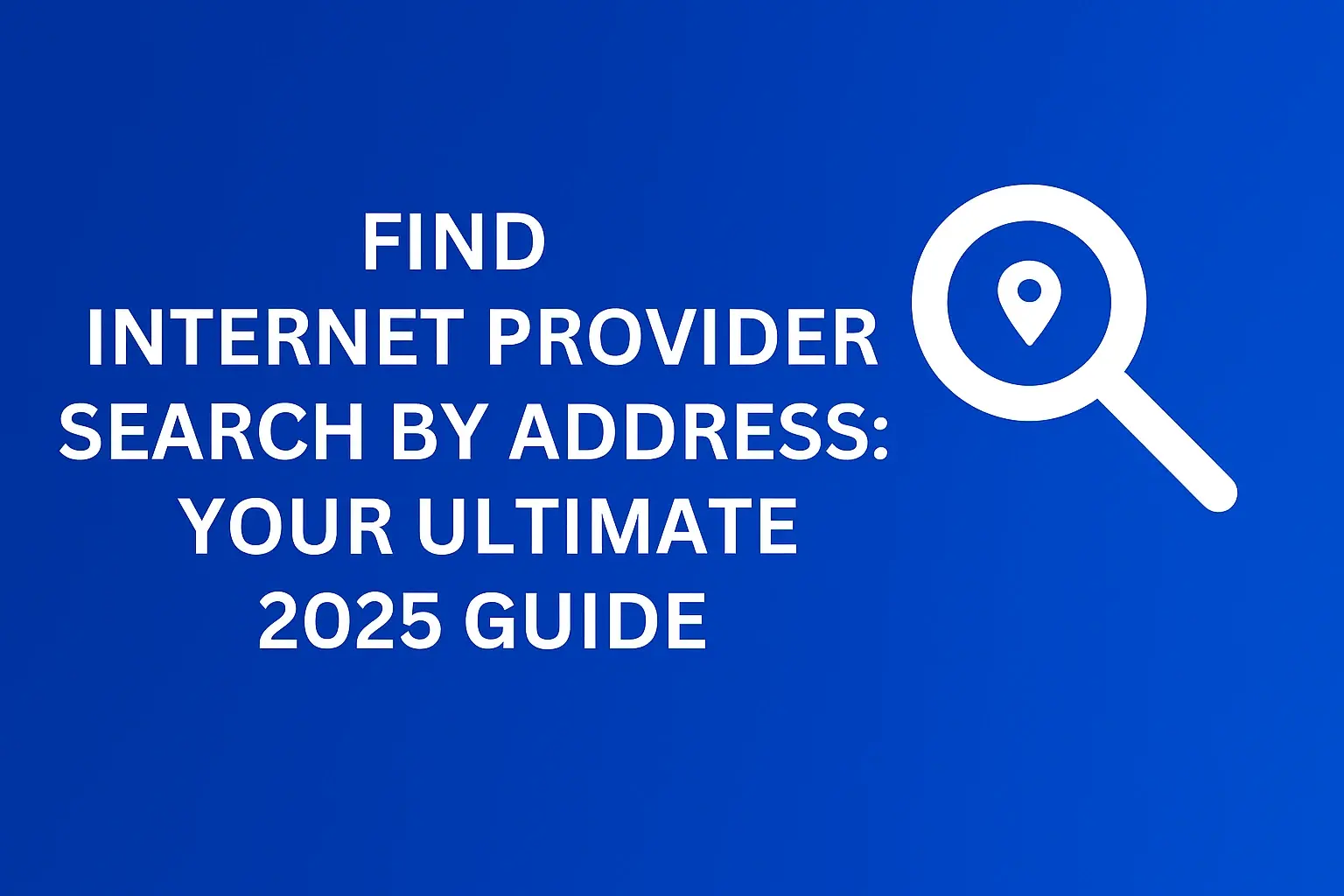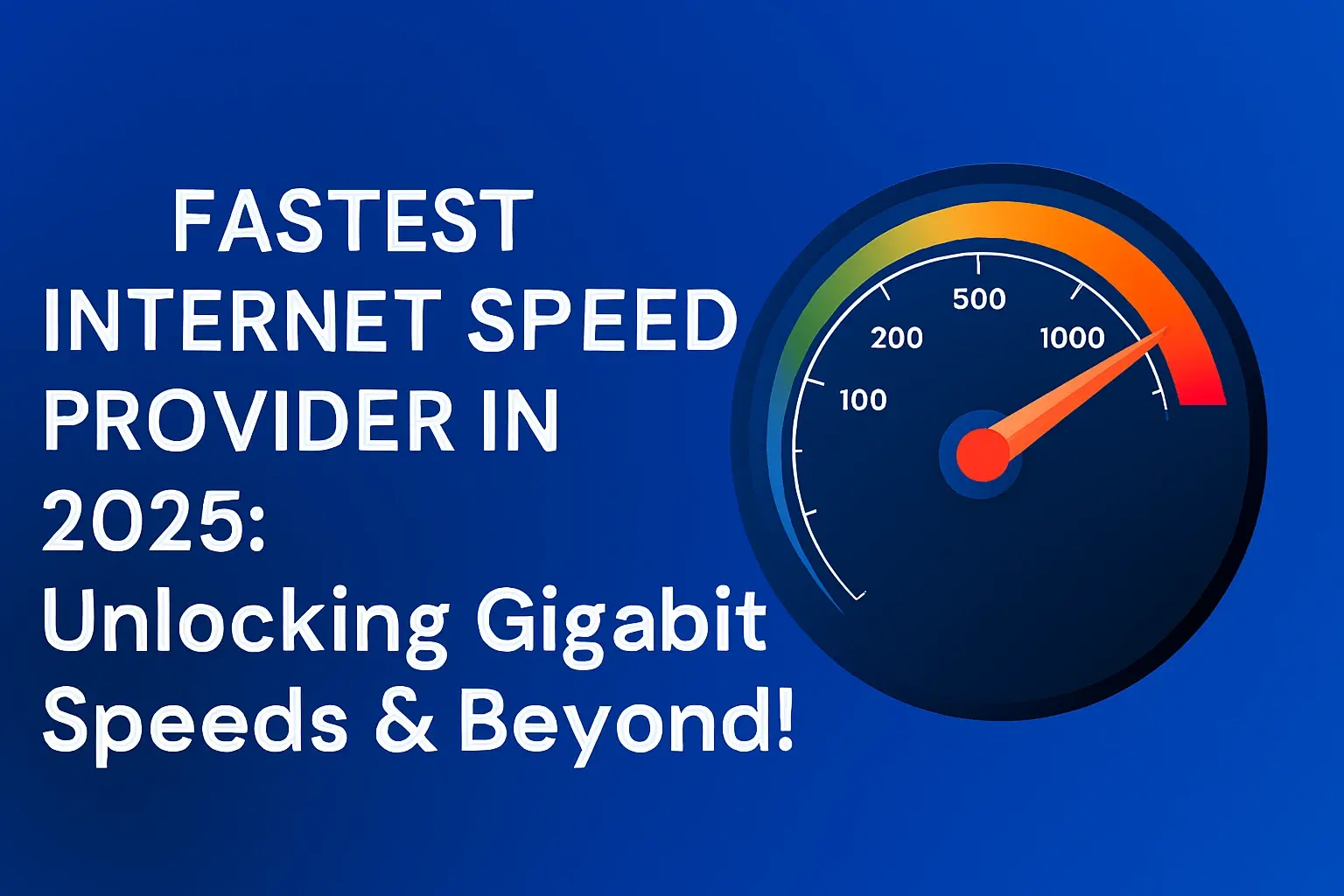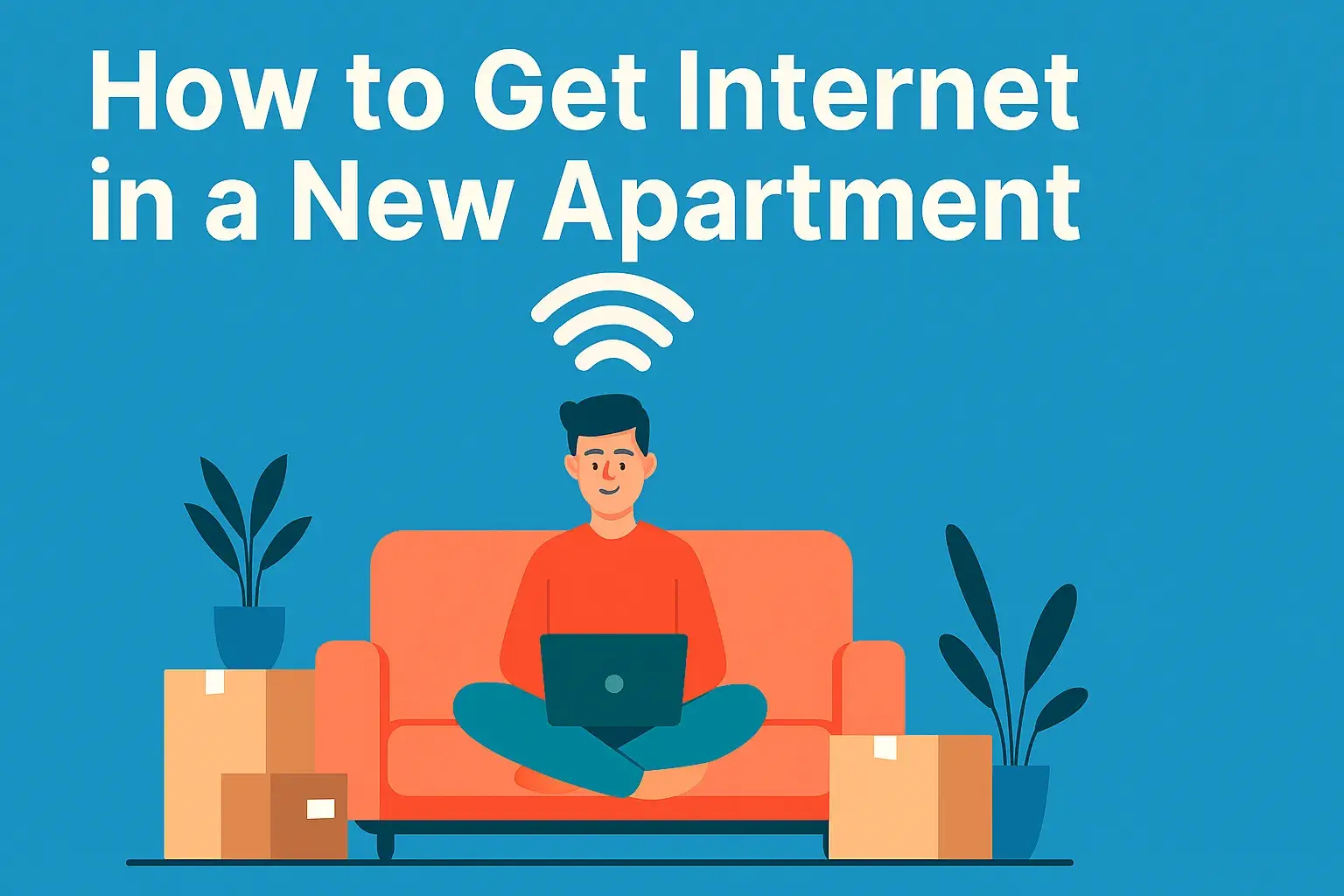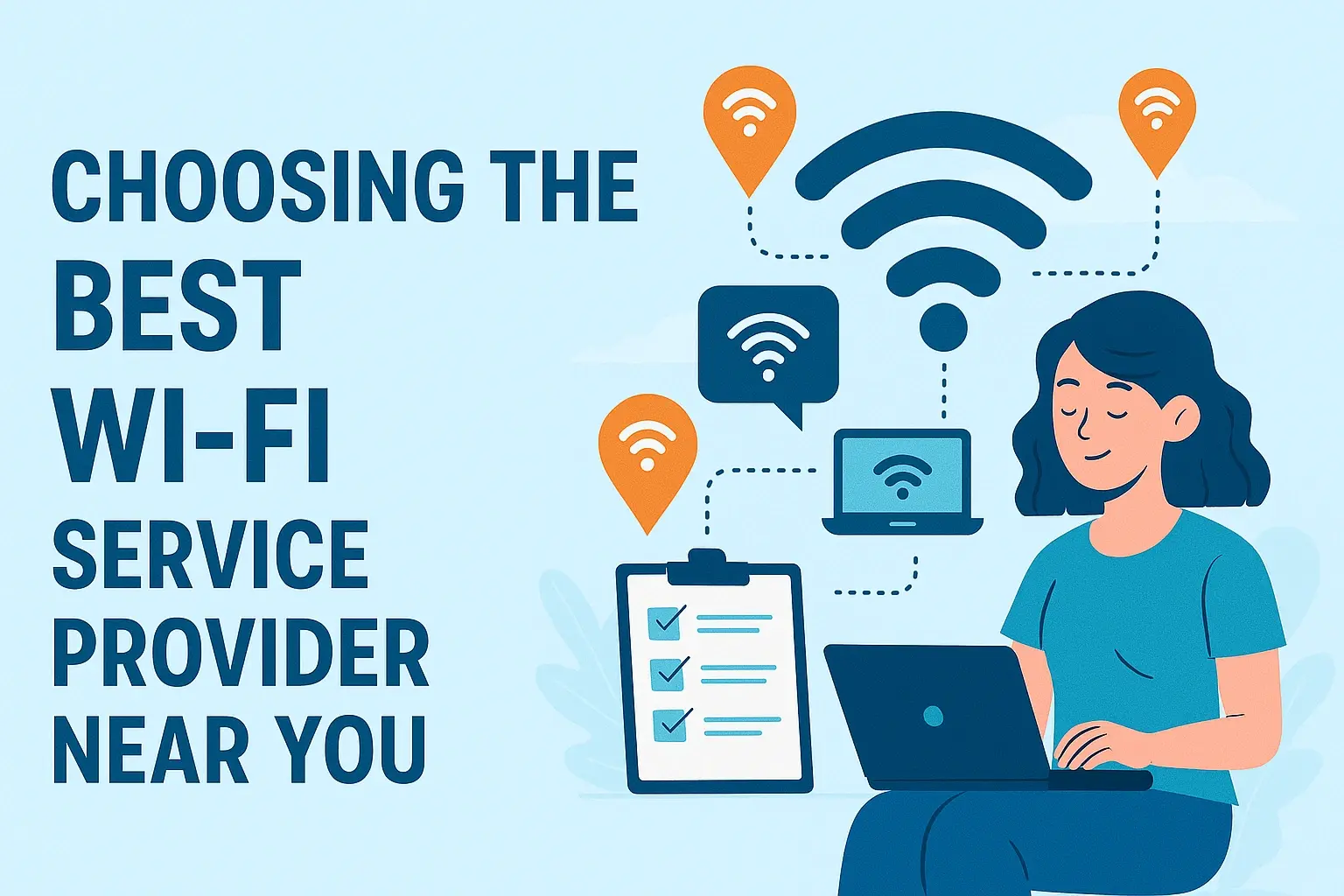Best Business Phone and Internet Packages for Success

Selecting the ideal business phone and internet packages is crucial for seamless operations, enhanced customer service, and sustained growth. This guide provides a comprehensive overview of the best options available in 2025, empowering you to make informed decisions for your company's success.
Understanding Your Business Needs
Before diving into specific packages, a thorough assessment of your business's unique requirements is paramount. This foundational step ensures you select a solution that not only meets your current demands but also scales with your future growth. Consider the size of your team, the volume of calls you handle, your internet usage patterns, and your budget. Are you a small startup needing basic communication, or a growing enterprise requiring advanced features and high bandwidth? Understanding these nuances will guide your search for the best business phone and internet packages for success.
Assessing Your Communication Volume
The number of inbound and outbound calls your business makes and receives daily is a primary factor. A small retail shop might only need a few lines, while a customer service-heavy operation could require dozens or even hundreds. Consider peak call times and potential for expansion. For instance, if your business experiences seasonal surges, your package should accommodate this flexibility.
Team Size and Collaboration Needs
The number of employees who need phone and internet access directly impacts the bandwidth and number of lines required. Beyond basic connectivity, consider collaboration features. Do your teams need video conferencing, instant messaging, screen sharing, or internal calling capabilities? The best business phone and internet packages often integrate these tools seamlessly.
Internet Usage Patterns and Bandwidth Requirements
Beyond voice calls, your business relies heavily on internet connectivity for email, cloud services, video conferencing, data transfer, and online operations. Analyze your typical internet usage. Do you frequently upload or download large files? Do multiple users simultaneously stream video or engage in bandwidth-intensive tasks? In 2025, with the rise of AI-powered tools and remote work, robust internet is non-negotiable. A minimum of 100 Mbps download and 20 Mbps upload is often recommended for small businesses, with larger enterprises requiring significantly more.
Budgetary Constraints
While cost is always a consideration, it's essential to view it as an investment rather than an expense. The most cost-effective solution isn't always the cheapest. Consider the total cost of ownership, including installation, equipment, monthly fees, and potential hidden charges. Balancing features, reliability, and price will lead to the best value.
Scalability and Future Growth
Your business is likely to evolve. Choose a provider and package that can easily scale up or down as your needs change. This includes adding or removing users, increasing bandwidth, or upgrading to more advanced features without significant disruption or exorbitant costs. Planning for scalability now can save considerable time and money later.
Key Components of Business Phone and Internet Packages
Business phone and internet packages are rarely a one-size-fits-all solution. They are typically comprised of several interconnected components, each playing a vital role in your company's communication infrastructure. Understanding these elements is crucial for making an informed decision.
Phone System Features
This encompasses the core functionality of your business phone service. Key features often include:
- Voicemail-to-Email: Transcribes voicemails into text and sends them to your email inbox.
- Call Forwarding: Directs incoming calls to another number, such as a mobile phone, when you're unavailable.
- Auto-Attendant (IVR): An automated system that greets callers and directs them to the appropriate department or extension (e.g., "Press 1 for sales, Press 2 for support").
- Conference Calling: Allows multiple parties to join a single call.
- Call Recording: Records incoming and outgoing calls for quality assurance, training, or legal compliance.
- Caller ID and Call Waiting: Standard features that display caller information and alert you to incoming calls.
- Business Hours Settings: Allows you to set different greetings and call routing rules based on your operating hours.
- Virtual Numbers: Enables you to have phone numbers in different area codes without a physical presence there.
- Mobile App Integration: Allows employees to use their business phone lines and features on their smartphones.
Internet Service Features
This refers to the speed, reliability, and type of internet connection provided. Key considerations include:
- Download and Upload Speeds: Measured in Mbps (Megabits per second), these determine how quickly data can be sent and received. Upload speed is particularly important for video conferencing and cloud uploads.
- Bandwidth: The maximum amount of data that can be transmitted over your connection in a given time.
- Reliability and Uptime Guarantees: Service Level Agreements (SLAs) that promise a certain percentage of network availability. For businesses, 99.9% uptime is often the minimum acceptable standard.
- Static IP Addresses: A fixed IP address, essential for hosting servers, VPNs, and certain business applications.
- Data Caps: Limits on the amount of data you can use per month, which can lead to overage charges if exceeded. Most business plans offer unlimited data.
- Service Type: Fiber optic, cable, DSL, or fixed wireless, each offering different performance characteristics.
Bundling and Integration
Many providers offer bundled packages that combine phone and internet services, often at a discounted rate. The level of integration varies. Some offer a single bill and customer support contact, while others provide more advanced unified communications platforms where voice, video, and messaging are seamlessly integrated.
Customer Support and Service Level Agreements (SLAs)
Reliable and responsive customer support is critical. Understand the provider's support channels (phone, email, chat), hours of operation, and typical response times. SLAs are contractual guarantees regarding service performance, uptime, and support response, offering a level of protection and accountability.
Types of Business Phone Systems
The "phone system" component of your package can take several forms, each with its own advantages and disadvantages. The best choice depends on your business size, technical expertise, and desired features.
Traditional Landlines (POTS - Plain Old Telephone Service)
These are the classic analog phone lines. While reliable for basic voice calls, they lack advanced features and are becoming obsolete. They are generally not recommended for modern businesses seeking comprehensive communication solutions.
PBX (Private Branch Exchange) Systems
PBX systems are on-premises hardware solutions that manage internal and external calls for a business. They offer a high degree of control but require significant upfront investment in hardware, installation, and ongoing maintenance. They are typically suited for larger enterprises with dedicated IT staff.
Key characteristics of PBX:
- On-Premises Hardware: Requires physical equipment at your business location.
- High Upfront Cost: Significant initial investment.
- Full Control: Complete management over the system.
- Requires IT Expertise: Needs skilled personnel for maintenance and upgrades.
IP PBX (Internet Protocol PBX)
An IP PBX uses internet protocol to transmit voice calls. This can be an on-premises system (IP-PBX hardware) or a hosted solution (see VoIP below). On-premises IP PBX offers more advanced features than traditional PBX but still requires hardware investment and IT management.
VoIP (Voice over Internet Protocol)
VoIP services transmit voice calls over the internet, rather than traditional phone lines. This is the most popular and flexible solution for businesses of all sizes in 2025. VoIP systems are typically cloud-based, meaning the infrastructure is managed by the provider.
Key characteristics of VoIP:
- Cloud-Based: No on-premises hardware required for the core system.
- Scalable: Easily add or remove users and features.
- Cost-Effective: Often lower monthly costs and no long-distance charges.
- Feature-Rich: Offers a wide array of advanced communication tools.
- Requires Reliable Internet: Performance is dependent on internet quality.
Hosted VoIP (Cloud-Based PBX)
This is a subset of VoIP where the PBX functionality is hosted by a third-party provider in the cloud. This is the most common and recommended solution for small to medium-sized businesses (SMBs) and many larger enterprises due to its flexibility, scalability, and cost-effectiveness. Providers like RingCentral, 8x8, and Dialpad are leaders in this space.
Key advantages of Hosted VoIP:
- Lower Upfront Costs: No major hardware purchases.
- Flexibility and Mobility: Access your phone system from anywhere with an internet connection.
- Automatic Updates: The provider handles software updates and maintenance.
- Advanced Features: Often includes unified communications, video conferencing, and team messaging.
Internet Connectivity Options for Businesses
The internet backbone of your business communications is as critical as the phone system itself. Choosing the right internet technology ensures reliable performance for voice, data, and all your online activities.
Fiber Optic Internet
Fiber optic internet uses strands of glass to transmit data as light signals. It offers the fastest speeds, lowest latency, and highest reliability. It's the gold standard for businesses requiring high bandwidth and consistent performance.
Pros:
- Extremely high speeds (up to 10 Gbps or more).
- Very low latency.
- Highly reliable and less susceptible to interference.
- Symmetrical speeds (upload and download speeds are equal).
Cons:
- Availability can be limited, especially in rural areas.
- Installation can be more complex and costly.
Cable Internet
Cable internet uses the same coaxial cables that deliver cable television. It offers a good balance of speed and affordability and is widely available.
Pros:
- Widely available.
- Good download speeds, suitable for most business needs.
- More affordable than fiber.
Cons:
- Shared bandwidth means speeds can fluctuate during peak usage times.
- Upload speeds are typically lower than download speeds.
- Higher latency than fiber.
DSL (Digital Subscriber Line)
DSL internet uses existing telephone lines to transmit data. It's generally slower than cable and fiber but can be a viable option in areas where other high-speed options are unavailable.
Pros:
- Uses existing phone lines.
- More affordable than fiber.
Cons:
- Speeds decrease with distance from the provider's central office.
- Significantly slower than cable and fiber.
- Limited bandwidth for modern business needs.
Fixed Wireless Internet
Fixed wireless uses radio signals to connect a business to a nearby tower. It's a good alternative for businesses in areas lacking wired infrastructure, such as rural or remote locations.
Pros:
- Good option for hard-to-reach areas.
- Can offer competitive speeds.
Cons:
- Performance can be affected by weather conditions and line-of-sight obstructions.
- Speeds and reliability can vary significantly between providers.
5G Business Internet
As 5G technology matures, it offers a compelling wireless alternative for businesses, providing high speeds and low latency, especially for mobile or temporary locations. It's increasingly becoming a viable primary internet solution for many businesses.
Pros:
- High speeds and low latency.
- Flexibility and mobility.
- Quick deployment.
Cons:
- Coverage can still be inconsistent in some areas.
- Data caps may apply to some plans.
- Reliability can be a concern for mission-critical operations compared to fiber.
Evaluating Providers and Packages
With a clear understanding of your needs and the available technologies, it's time to evaluate specific providers and their offerings. This is where careful comparison and due diligence become critical.
Key Factors to Consider When Choosing a Provider:
- Reputation and Reviews: Look for providers with a strong track record of reliability, uptime, and customer satisfaction. Read online reviews and testimonials from other businesses.
- Customer Support Quality: As mentioned earlier, responsive and knowledgeable support is vital. Check reviews specifically mentioning customer service experiences.
- Service Level Agreements (SLAs): Understand the guarantees provided regarding uptime, response times for issues, and service restoration.
- Pricing Structure: Compare not just the monthly cost but also installation fees, equipment costs, contract lengths, and any potential hidden charges.
- Contract Terms: Be aware of contract lengths, early termination fees, and renewal clauses.
- Scalability Options: Ensure the provider can easily accommodate your business's growth.
- Bundling Discounts: See if combining phone and internet services offers significant savings.
- Security Features: For business packages, inquire about security measures like firewalls, encryption, and protection against cyber threats.
Comparison Table: Business Phone and Internet Package Considerations
| Factor | Critical for Success | Considerations |
|---|---|---|
| Phone System Type | Hosted VoIP is generally recommended for most businesses in 2025. | Traditional PBX (on-premise) for large enterprises with IT staff; VoIP for flexibility and features. |
| Internet Speed | Sufficient download and upload speeds for all business operations. | Minimum 100 Mbps download / 20 Mbps upload for SMBs. Fiber is ideal. |
| Reliability & Uptime | 99.9% uptime guarantee or higher is essential. | Check SLAs. Redundant internet connections can be considered for critical operations. |
| Key Phone Features | Auto-attendant, call forwarding, voicemail-to-email, mobile app integration. | Conference calling, call recording, virtual numbers, CRM integration. |
| Customer Support | 24/7 support is highly desirable for business-critical services. | Response times, available channels (phone, chat, email), and expertise. |
| Scalability | Ability to easily add/remove users and services. | Provider's flexibility in adjusting plans and features. |
| Contract Length | Shorter terms (1-2 years) offer more flexibility. | Understand early termination fees and price increases upon renewal. |
| Total Cost of Ownership | Includes monthly fees, installation, equipment, and potential upgrades. | Look for transparent pricing and avoid hidden fees. |
Understanding Contractual Obligations
Business contracts for phone and internet services can be complex. Always read the fine print carefully. Key areas to scrutinize include:
- Contract Duration: Most business contracts range from 1 to 3 years. Shorter terms offer more flexibility, while longer terms might offer lower monthly rates.
- Early Termination Fees (ETFs): Understand the penalties for breaking the contract before its expiration date. These can be substantial.
- Price Guarantees: Does the provider guarantee your rate for the duration of the contract, or can it increase?
- Service Level Agreements (SLAs): These are crucial for ensuring performance and reliability. They often detail uptime guarantees, response times for technical support, and remedies if these are not met.
- Equipment Clauses: If equipment is leased, understand the terms of the lease and what happens to it at the end of the contract.
Top Business Phone and Internet Packages for 2025
Navigating the vast landscape of providers can be daunting. Based on current market trends, technological advancements, and user feedback for 2025, here are some of the top contenders and what makes them stand out. It's important to note that the "best" package is highly dependent on your specific business needs and location.
Leading Hosted VoIP Providers:
These providers excel in offering feature-rich, scalable, and reliable cloud-based phone systems, often bundled with internet services or designed to work seamlessly with any high-speed internet connection.
1. RingCentral MVP (Message, Video, Phone)
RingCentral is a dominant force in the UCaaS (Unified Communications as a Service) market. Their MVP platform offers a comprehensive suite of tools.
- Phone Features: Advanced call management, auto-attendant, call recording, integrations with popular CRMs (Salesforce, HubSpot), unlimited domestic calling.
- Internet Integration: While they don't typically provide the internet service directly, they have strict recommendations for internet quality and offer guidance on choosing the best ISP.
- Strengths: Robust feature set, excellent reliability, strong mobile app, extensive integrations, good for growing businesses.
- Considerations: Can be pricier than some competitors, especially for lower tiers.
2. 8x8 X Series
8x8 offers a powerful and integrated platform for voice, video, and collaboration, often praised for its global reach and advanced analytics.
- Phone Features: High-definition voice and video, team messaging, contact center capabilities, global calling options.
- Internet Integration: Similar to RingCentral, 8x8 focuses on the UCaaS layer and recommends optimal internet configurations.
- Strengths: All-in-one platform, strong international presence, advanced contact center features, good for businesses with global operations.
- Considerations: Interface can be complex for some users, pricing can increase with feature sets.
Leading Internet Service Providers (ISPs) for Business:
These providers offer robust internet connectivity, often with business-specific plans that include static IPs, higher bandwidth options, and dedicated support.
1. Verizon Business
Verizon is a top-tier provider, especially for businesses seeking fiber optic connectivity and reliable mobile solutions.
- Internet Offerings: Extensive fiber optic network (Fios Business) offering symmetrical speeds up to 10 Gbps. Also offers 5G Business Internet and LTE backup.
- Business Features: Dedicated business support, SLAs, static IP addresses, cybersecurity solutions.
- Strengths: Unmatched fiber speeds and reliability, strong network infrastructure, excellent for high-demand operations.
- Considerations: Availability of Fios can be limited geographically. Pricing can be premium.
2. AT&T Business
AT&T provides a comprehensive range of connectivity solutions, including fiber, fixed wireless, and advanced networking services.
- Internet Offerings: Fiber optic services in many areas, alongside DSL and fixed wireless options. Offers dedicated internet access (DIA) for businesses requiring guaranteed bandwidth.
- Business Features: Business-grade support, security services, cloud solutions, and network management.
- Strengths: Wide availability of different technologies, strong enterprise solutions, good for businesses needing more than just basic internet.
- Considerations: Fiber availability varies. Performance of non-fiber options can be inconsistent.
3. Spectrum Business
Spectrum offers competitive cable internet packages for businesses, known for their widespread availability and bundled services.
- Internet Offerings: High-speed cable internet with speeds up to 1 Gbps download. Also offers dedicated fiber services in select areas.
- Business Features: Business-grade support, uptime guarantees, static IP options, bundled voice services.
- Strengths: Wide availability of high-speed cable, competitive pricing, good for businesses that don't require the absolute highest speeds of fiber.
- Considerations: Upload speeds are typically lower than download speeds. Shared bandwidth can lead to fluctuations.
Example of a Bundled Solution (Conceptual):
A small business (e.g., a marketing agency with 10 employees) might opt for:
- Provider: A combination of RingCentral for VoIP and Verizon for Fiber Internet.
- RingCentral Package: RingCentral MVP Premium plan, offering unlimited calling, auto-attendant, call recording, and CRM integrations.
- Verizon Internet: Verizon Fios Business 500/500 Mbps plan (500 Mbps download, 500 Mbps upload).
- Why it works: This combination provides crystal-clear voice quality due to the symmetrical fiber speeds and low latency, while the robust VoIP features support efficient client communication, collaboration, and CRM integration. The scalability of both services allows the agency to grow without immediate service changes.
Statistics for 2025:
- 5G Business Internet Adoption: Expected to grow by 35% in 2025 as businesses seek more flexible and rapid deployment options. (Source: TechAnalyst Group 2025 Report)
- UCaaS Market Growth: The Unified Communications as a Service (UCaaS) market is projected to reach $115 billion by 2027, with significant growth driven by SMB adoption in 2025. (Source: Global Market Insights)
- Fiber Optic Expansion: Investment in fiber optic infrastructure is increasing, with an estimated 70% of businesses in major urban centers having access to fiber by the end of 2025. (Source: Telecommunications Industry Review)
- Importance of Uptime: Studies show that a single hour of internet downtime can cost a small business an average of $5,600 in 2025. (Source: Business Continuity Insights)
Making the Right Choice for Your Business
Selecting the best business phone and internet packages is a strategic decision that impacts your company's efficiency, customer satisfaction, and bottom line. By following a structured approach, you can ensure you make an informed choice that propels your business forward.
Step-by-Step Guide to Choosing Your Package:
- Define Your Needs: Revisit the assessment of your communication volume, team size, internet usage, budget, and scalability requirements.
- Research Providers: Identify reputable providers in your area that offer the types of services you need (e.g., Hosted VoIP, Fiber Internet).
- Compare Specific Packages: Don't just look at advertised speeds or base prices. Compare the features included, contract terms, SLAs, and customer support options.
- Request Quotes: Contact providers directly to get personalized quotes based on your specific needs. This is also an opportunity to gauge their sales and support responsiveness.
- Read Reviews and Seek Recommendations: Leverage online reviews, industry forums, and ask for recommendations from other businesses in your network.
- Understand the Contract: Carefully review all contractual agreements, paying close attention to SLAs, pricing, and termination clauses.
- Plan for Installation and Training: Ensure a smooth transition by coordinating installation timelines and planning for employee training on any new systems or features.
The Synergy of Voice and Data
It's crucial to remember that your phone and internet services are interconnected. A robust internet connection is the foundation for a reliable VoIP system. Conversely, a feature-rich VoIP system can enhance your business's overall communication strategy. Look for packages or providers that understand this synergy and can offer integrated solutions or clear guidance on how to best combine services for optimal performance.
Don't Overlook the Small Details
While headline features and speeds are important, don't underestimate the impact of:
- Customer Support: When issues arise, prompt and effective support can save your business significant time and money.
- Ease of Use: An intuitive interface for your phone system and user-friendly internet management tools contribute to operational efficiency.
- Integration Capabilities: Seamless integration with your existing CRM, project management, or other business software can streamline workflows.
A Final Thought on Investment
The "best" business phone and internet package is an investment in your company's future. Prioritize reliability, scalability, and features that directly support your business objectives. While cost is a factor, the long-term benefits of superior communication and connectivity will far outweigh the initial expenditure.
Conclusion
Choosing the best business phone and internet packages in 2025 is a strategic imperative for any company aiming for sustained success and competitive advantage. By thoroughly assessing your unique operational needs, understanding the critical components of modern communication solutions, and diligently evaluating providers, you can secure a service that not only meets but exceeds your expectations. Prioritize hosted VoIP for its flexibility and feature richness, and opt for high-speed, reliable internet, preferably fiber optic, to ensure seamless operations. Remember to scrutinize contract terms, service level agreements, and the quality of customer support, as these elements are vital for uninterrupted service and efficient problem resolution. Ultimately, the right package is an investment that enhances productivity, improves customer engagement, and supports your business's growth trajectory.





